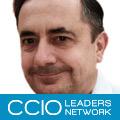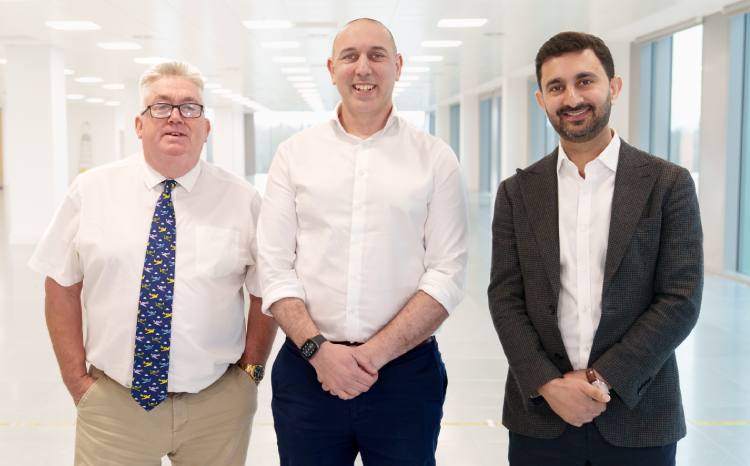Mind the gaps
- 27 March 2013

I have been a GP for more than 20 years and have a long-standing interest in informatics. I now also work as chief clinical information officer for UCL Partners, an academic health science centre and network focusing on improving outcomes for patients.
There is a lot of talk at the moment about the use of information within the NHS with a focus on using this to measure quality.
Paper-lite but still information-lite
My GP practice has been ‘paper-lite’ since before I joined and we have been scanning all incoming mail for the past 15 years. Many GPs have been doing similar things over that time; so, surely, we must be awash with useful information on NHS performance?
Sadly, the reality is very different. While we have a lot of data on our system, there is some variability between clinicians as to how we record a clinical consultation; which makes internal measurements challenging.
However, once we look between practices, the difficulties become even more significant; as the variation between how individual entries are recorded become even greater.
Over the past few years, we have seen ways of joining GP data together from different practices. EMIS Web has provided mechanisms for analysing differences between practices.
And in my own area, a system called Health Analytics has allowed data to be extracted from different systems and combined with Secondary Uses Service data so we can start to look at combining data from across care settings.
Examples of where this has been useful have included looking at patients discharged from hospital with a diagnosis who are not on the GP register as having the disease for which they were diagnosed.
It may be that the diagnosis was not confirmed after discharge, or it may be that the patient has the disease and is missing out on treatment because they are not on the GP register.
I believe that we need to start using routinely collected data more effectively across the NHS; even recognising that data capture in many trusts is lagging behind that within primary care.
Data needed everywhere
Data captured at the point of care has several potential uses. It can be used within an organisation and by other organisations looking after a particular patient to support the delivery of direct patient care to that patient. This data needs to be patient-identifiable and patient consent is required for sharing.
Data can also be used to measure quality of care locally within and between organisations, especially where integrated care is been delivered between several organisations. Pseudomomised data is sufficient for this, but individual organisations may need to re-identify the patients locally in order to address any gaps in care.
The commissioning process requires data to show performance within and between organisations; but this can be anonymised.
Research using linked data sets is an increasing area in which operational data may provide valuable insights into patient care that have previously been difficult and expensive to obtain.
And finally there is the transparency agenda, with its focus on making anonymised, aggregated data available to the public. This will help to provide information to the public, allowing comparisons between organisations.
Challenges to overcome
So what are the challenges and why is it taking so long to develop and implement systems to do this?
The first set of challenges are cultural. Clinicians are not generally trained in the use of computers at the point of care and often (correctly) perceive them as slowing down the consultation process and interfering with the clinician / patient relationship.
Another set of challenges relate to user interfaces. Many systems are not intuitive to use and may make the capture of routine data more difficult than it needs to be. I think recent advances in the use of tablets and touch screen computers will improve things in this area, but these advances will need integrating with existing clinical systems, and that might not be easy.
And then there is technology. Until recently, storage, processing power, connectivity, and system interoperability have provided significant challenges. Again, these are developing rapidly so technology itself should not be seen as a block. On the other hand, integration into existing systems will still be challenging and potentially expensive.
Consent and information governance are also a challenge, with polarised views of what consent is required and what Information governance rules apply. These challenges have often added delays and cost to existing projects.
I believe that there is increasing agreement on these processes and the output of the upcoming Caldecott 2 review – Dame Fiona Caldicott’s return to issues of information governance and information sharing in the NHS – is likely to clarify these issues further.
Action on many fronts
With the NHS digital challenge and the ministerial drive towards a paperless NHS by 2018, it is important to address these issues in parallel.
We need to make sure we fill the gaps in existing technology and NHS culture while at the same time maintaining the trust of professionals, patients and remaining within existing information governance guidelines.
There is a lot to be gained by adopting this approach; creating an information driven NHS with clear measureable outcomes, increased efficiency and reduced costs through reduced duplication.
I am hopeful that after 20 years working around the challenges of sharing data we can start making some significant progress towards getting useful information from the mountains of data we collect.
This will have significant benefit for planning delivery of care, assessing the quality of care and most importantly support clinicians in delivery of that care to our patients.


Phil Koczan
Phil Koczan is the chief clinical information officer for UCL Partners, one of five academic health science systems in the UK.
He has a remit to look at how to better share information safely and securely across the healthcare settings to support patient care, commissioning, research and quality improvement. He has a long standing interest in clinical informatics having worked in various roles across the NHS and IT system suppliers.
Phil has also been a GP in Chingford, North East London, for 20 years. He is a fellow of the Royal College of General Practitioners and a member of its health informatics group




